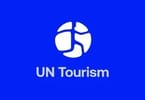Tourism is not only the world’s largest industry, but also often its most misunderstood. Many people outside of the industry believe that tourism professionals are on a permanent vacation. Others complain about tourism’s negative impact. They see greater traffic on the streets, they note the waits in restaurants and cultural events, and complain that visitors often get lost, are loud, and even rude. While certainly the tourism industry has to plead guilty to some of these charges, any fair minded person will soon realize that tourism does a lot more good than harm and without it many a place would be a lot poorer not only from a monetary standpoint but also from a cultural standpoint. Perhaps one area in which tourism needs to improve is in the area of local or internal marketing.
Although tourism officials do a splendid job in explaining why their locales are deserving of visitations, they often do a less than perfect job or translating the importance of tourism to the local population. This lack of internal marketing means that tourism professionals must continuously explain themselves to city councils, to mayors or other government officials in order to obtain the necessary funding to do their job properly. In order to help you market your tourism industry to the local population, Tourism Tidbits offers the following suggestions.
Know something about your tourism history. It is essential that tourism professionals understand their industry on the macro (world level) as well as the micro (local) level. In many places around the world, tourism is a vital part of their economy. Ever since 1980 (Manila Declaration on World Tourism of 1980) scholars and political leaders have come to understand that tourism is “an activity essential to the life of nations because of its direct effects on the social, cultural, educational and economic sectors of national societies and on their international relations.”
Know how much tourism brings to your locale in the form of: (1) goods and services, (2) employment opportunities, especially for young people, (3) adds income to the transportation industry both on the local level (buses and taxis) and on the national and international level (interurban buses, trains and airplanes) adds to tax revenues via taxes on gas and other travel services, forms the backbone of the local lodging industry, adds to the recreational and cultural industries in places such as amusement parks, concerts, museums, casinos, and theaters, and is and important factor in shopping and mall visitations.
-Know the importance of tourism on a world level, national level, state or provincial level and on the local level. Although it is true that all politics is local, local politicians like to be part of worldwide movements. For example, the World Tourism Organization (WTO) reports that at least one billion tourists have travelled the world in 2012, marking a new record for international tourism – a sector that accounts for one in every 12 jobs and 30% of the world’s services. International tourism alone produces revenues in the trillions of dollars. These figures do not take into account national or domestic tourism. Were these figures to be included the numbers would be much higher.
-Know what your local tourism industry produces. Make sure that your figures are accurate and exact. Do not exaggerate and be able to defend what you state. Make sure that the public is aware of the fact that were your community not to have tourism then how much money your locale would lose, how many jobs would be lost and how much taxes would need to be raised to replace the lost income from tourism.
-Note tourism impact on your locale’s quality of life. Without tourism could your local attractions survive? How many restaurants would go under if locals lost their jobs and had to pay higher taxes to replace lost tourism revenues? Would there be sufficient tax revenue to maintain local parks and other essential city services?
Despite all of these positives, many people still do not know the value of tourism. To help get the word out, consider:
-Send out a weekly memo to the citizens of your community. Most people have no idea what tourism professionals are doing for them. Find a way to communicate directly with your public. The communication can be as simple as a one pager or more elegant, but it lets people know that you are active on their behalf. These memos can be in the form of a newspaper blog or article, a report on television or radio or an email blast to the community. You can also write a frank and honest newspaper column. Such a column not only educates the public about tourism but also teaches the public about your job, your successes and the challenges your community faces.
-Be involved in your community. All too often tourism professionals ask more of their community than their community believes they are giving to the community. Although this perception is rarely true, just as any other perception it can become true in its consequences. Remember that more you are seen, the more people tend to see you as “a public institution.” Do volunteer work around town, it provides visibility and builds social capital.
-Be a people person. Individuals work best with people whom they like. At least once a week walk the streets of your community, listen to what people have to say, and make it clear to them that you care about their welfare.
-Ask for your constituency’s input. Often brainstorming not provides you with some great new ideas, but it helps to make people feel part of your team. The more someone feels ‘part of you’ the more likely that person is going to support you.
-Never be afraid to admit mistakes! Nothing can undercut your credibility worse than a cover-up. Most people understand that active people make mistakes, but once you are caught in a cover-up, the cover-up becomes the issue rather than the mistake.
-Don’t be afraid to say you don’t know. CEO’s are not expected to know everything. When in doubt call in an expert. Realizing what you don’t know and seeking good advice is a lot better than causing a major error that can cost your agency many dollars to repair and perhaps your job.
This article was written prior to the Boston Marathon Tragedy and the tragedy in West, Texas. T&M extends its deepest sympathies to all who have suffered due to this senseless act of terrorism.
www.tourismandmore.com
WHAT TO TAKE AWAY FROM THIS ARTICLE:
- (1) goods and services, (2) employment opportunities, especially for young people, (3) adds income to the transportation industry both on the local level (buses and taxis) and on the national and international level (interurban buses, trains and airplanes) adds to tax revenues via taxes on gas and other travel services, forms the backbone of the local lodging industry, adds to the recreational and cultural industries in places such as amusement parks, concerts, museums, casinos, and theaters, and is and important factor in shopping and mall visitations.
- Ever since 1980 (Manila Declaration on World Tourism of 1980) scholars and political leaders have come to understand that tourism is “an activity essential to the life of nations because of its direct effects on the social, cultural, educational and economic sectors of national societies and on their international relations.
- While certainly the tourism industry has to plead guilty to some of these charges, any fair minded person will soon realize that tourism does a lot more good than harm and without it many a place would be a lot poorer not only from a monetary standpoint but also from a cultural standpoint.






















